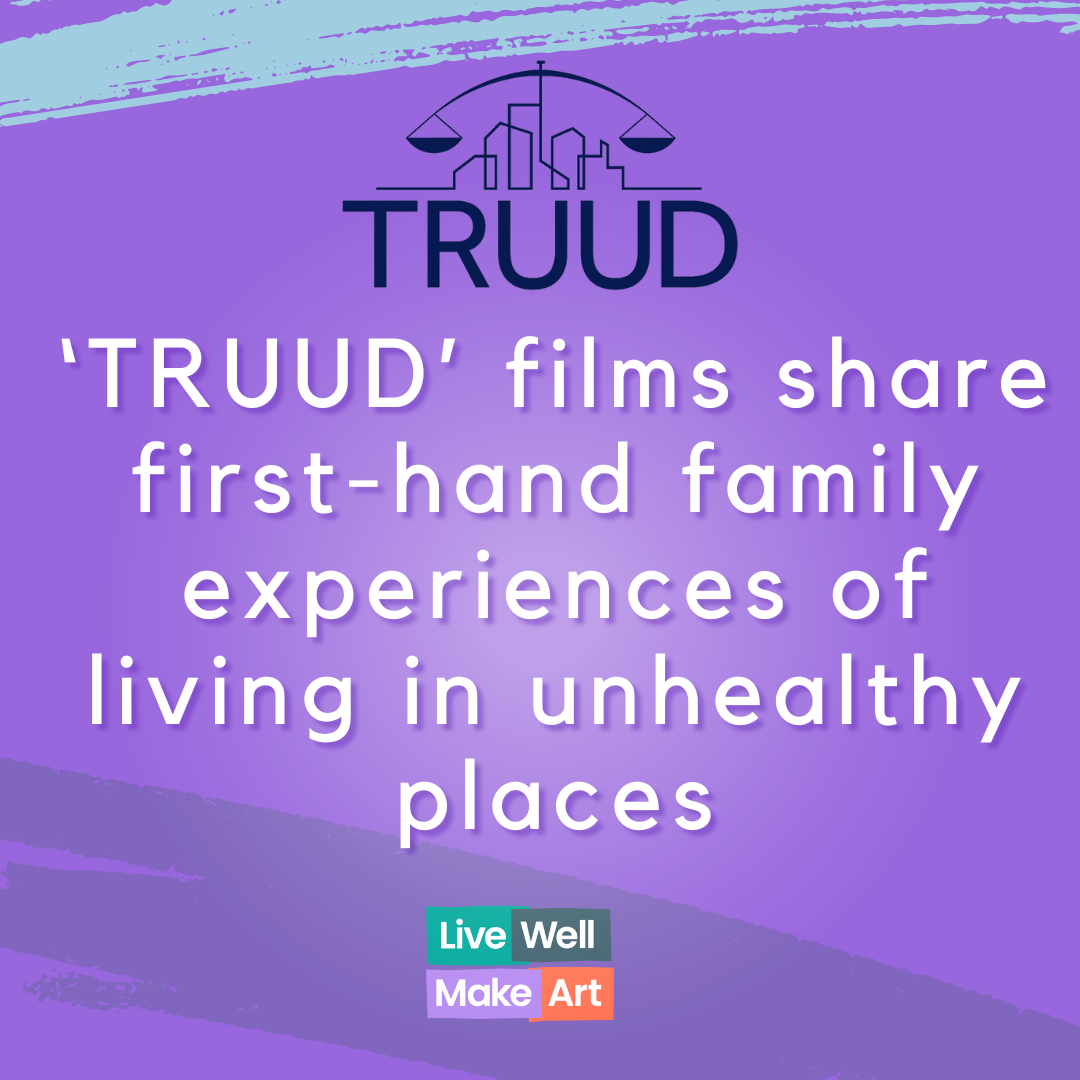
Four families explain the toll of living conditions on their physical and mental health in a series of films to help change urban planning policy and practice in the UK.
The films detail first-hand experiences and the impacts of overcrowding, lack of green space, damp, noisy or polluted environments on respiratory illnesses, mental health, child behaviour and quality of life.
They have been commissioned by TRUUD, a research programme based at the University of Bristol, that aims to reduce non-communicable disease (such as cancers, diabetes, obesity, mental ill-health and respiratory illness) and health inequalities linked to the quality of urban planning and development. The films will be used in discussions with both local and national government and the commercial development industry to raise awareness of the links between the built environment and health.
Using evidence gathered through TRUUD research and its HAUS economic modelling tool the films feature:
-
Samuel and his two young sons in a 15th floor cramped one-bedroom flat. The family sleep in the same bed and Samuel struggles to find places for his sons to play. The boys feel tired at primary school and can have problems with their behaviour. Samuel has taken medication for depression.
-
Kadra and Wendy raising their children and managing their lives in damp homes. Kadra and her young sons all experience coughing and chest problems and her youngest is scared to use the mouldy bathroom so has reverted to using nappies. Wendy lives with her 18 year old daughter and spends most of her time at work to avoid her extremely mould-ridden house. Her mental health has suffered and she believes her osteo-arthritis is triggered by the damp.
-
Shakar and his family are living with traffic noise and air pollution. Shakar, his wife Shabnam and three sons aged 15, 17 and 24 all suffer from a lack of sleep due to heavy traffic noise and a bus stop outside their house. Shakar has been on medication for stress and anxiety and Shabnam suffers from severe asthma. The eldest and youngest sons also have asthma which worsens when at home.
Dr Jo White at the University of the West of England led the commissioning of the films. She said:
“Our films show the real and varied health impacts on families of living in unhealthy places.
“They provide powerful insight into the links between urban planning and development decisions and health.
“Using lived experience evidence is an important part of our work on TRUUD and I’d like to thank all our film participants for telling their stories. They did so, hoping this will promote change in how urban spaces are designed. The films will be used as part of our TRUUD interventions with government and industry.”
The films are all available on the TRUUD website and were made by Drummer TV.
Dr Rosalie Callway, Healthy Homes campaign manager at the Town and Country Planning Association added:
“It is incredibly shocking to witness the dire housing conditions that children, families and individuals are living in around the country – conditions that make people unwell. Such homes harm childhood development by preventing children from being able to play, study or even sleep properly. It also makes parents unwell, so they are less able to support their families or work. This situation is entirely preventable.
“The government says current regulations and policies are good enough. But that clearly isn’t the case. We are calling on the government to create a national healthy homes strategy and plan, in partnership with developers, landlords, housing providers and community actors. We urgently need more homes but we must ensure they are built in the right way and in the right places. This means homes that are not just ‘decent’ but also resilient, inclusive, genuinely affordable, and provide a safe haven that allows people to thrive, as a connected part of their communities.”
In 2025, the TRUUD project is planning to work with Live Well Make Art and local communities in Greater Manchester, to co-design creative and accessible ways of communicating evidence and information about the impacts of the built environment on health with the public. If you are interested in finding out more, please contact Jo White via jo.white@uwe.ac.uk